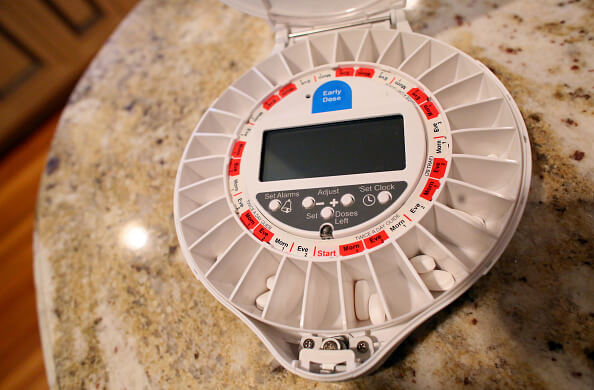Whether it’s a vacation abroad, a semester at sea or simply a night on the town and you forgot – obtaining birth control is not so easy for women in the United States – as it is in some other countries. Laws exist, opinions vary, and questions remain as to why women can only get certain types of birth control once a month or for a few months at a time, and if and how that can be changed.
Mark DeFrancesco is president of the American Congress of Obstetricians and Gynecologists (ACOG) and has a lot to say about state laws allowing pharmacists to prescribe oral contraceptives.
“Birth control is an essential part of women’s health care, and over-the-counter status would help more women benefit from the ability to control their own reproductive health,” he said.
“Of course, decades of use have proven that oral contraceptives are safe for the vast majority of women and that they are safer than many other medications that are already available over the counter.” RELATED: Millennials aren’t getting tested for HIV “This is not going to allow us to reach women who remained underserved by the current prescribing requirements.”
Dr. Vanessa Cullins, vice president for external medical affairs from Planned Parenthood, said that a woman who is planning a trip or a big move, or to be away from her doctor for an extended period of time, should check in with her health care provider beforehand about any needed prescriptions. Depending on where you live, you might be eligible for a six- to 12-month supply of prescription birth control. Cullins suggests checking with your doctors to see if that’s a possibility.
“There are many contraceptive options for women, and all come with different benefits and risks,” she said.
“It’s important that you talk with your health care provider about which method may be best for you, your life, and the demands of your schedule. Women who are worried about their access to birth control – whether because they’re traveling or simply unable to get to a pharmacy regularly – might want to consider using a long-acting reversible birth control like an IUD or implant.” RELATED: These countries offer birth control without a prescription Cullins said these types of contraceptives don’t require men or women to remember to do something regularly to prevent getting pregnant – like take a pill, slap on a patch or roll on a condom. They also offer protection against unplanned pregnancy for three, five or up to 12 years. “Many women like not having to remember to take a pill everyday or switch out a ring every month,” said Cullins.
“Once an IUD or implant is inserted, you can pretty much just forget about it.”
According to the ACOG, last month, Oregon became the first state to extend birth control prescribing rights to pharmacists. The ACOG doesn’t think that goes far enough.
“Requiring a pharmacist to prescribe and dispense oral contraceptives only replaces one barrier – a physician’s prescription – with another,” said DeFrancesco.
In most states, getting a prescription for birth control requires an appointment with a gynecologist, a physical exam, explaining why its needed and then going to a local pharmacy to get it filled. California’s legislature is having discussions on making birth control pills available without a prescription, a change that may be slated to take effect in March.
Experts argue for women to have easier access to the Pill

Getty Images































